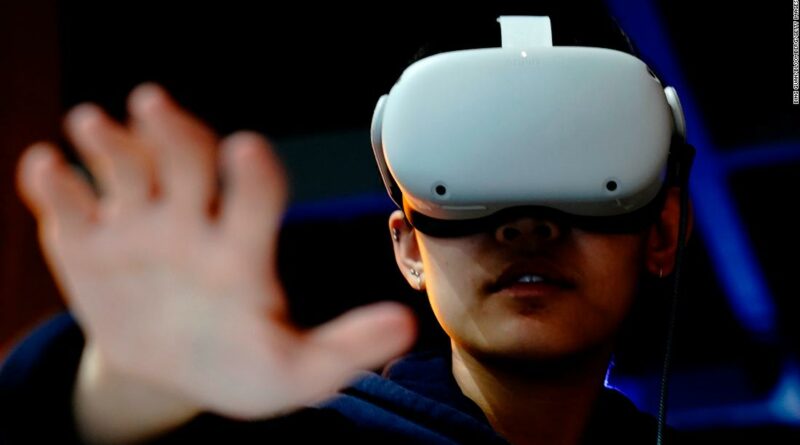Scott Galloway: The metaverse could give more power to tech giants
Scott Galloway is a marketing professor at New York University’s Stern School of Business, and a writer and podcast host. His new streaming show No Mercy, No Malice is now airing on CNN+. The opinions expressed in this commentary are his own.
It’s been about six months, since we first heard Meta CEO Mark Zuckerberg’s fever dream for a beautiful metaverse. But the metaverse could be so much more than one man’s quest for control over our virtual lives.
Most would agree that the metaverse could be a series of connected virtual environments that resemble and function similar to our physical world; or, a three-dimensional immersive version of the Web. And we have a sense for what it will be because many of its components already exist: social interactions, economic interactions, are all features of a future metaverse that are not new.
What is new about the metaverse? Separate applications could connect into a seamless experience. You already likely engage in several metaverses every day. Our discreet virtual spaces of today might become one virtual universe tomorrow. The three-dimensional environments of modern games, the connectivity of social media and the commercial power of e-commerce might be all in one seamless, persistent space accessible to everyone on Earth.
The dream is very much alive — if a dream is a herd of tech companies stampeding to cash in. For Meta, Microsoft and other Big Tech players, this vision of the metaverse represents an enormous opportunity, specifically, the chance to be a platform not just for gaming or social media, but for life itself — a place where we work, learn, earn and spend; sort of an operating system for our digital lives.
And why might this happen now? Covid has forged new ground in regard to our digital comfort zones. Many more of us are comfortable with living online.
But for a true metaverse to be realized, it will need to include two features: money and freedom.
Let’s start with money. If it’s to thrive, the metaverse will need to function similarly to a real-world economy. Like the real world (at least in any capitalist society), it has to incentivize individuals to participate in and grow the economy. And we’re already seeing early signs of this.
But, what we still need for that second key component of this metaverse promise to pan out: specifically freedom, or at least interoperability. There’s no point earning magic internet money if you can’t spend it wherever you want — online or offline. And that goes for all other forms of capital you build online as well: your social capital — friends, connections, followers; and your possessions, your stuff.
Why buy clothes if you can’t wear them out of the store? Why buy a Birkin bag if you can’t show it off in the metaverse? Or wear my Fortnite outfit on a Call of Duty raid? Or at a Lil Nas X concert on Roblox? I bought it. I own it. It’s mine.
Also, I should be able to sell it anywhere I want. The freedom, and frankly convenience, of decentralization and interoperability has been promised not only by the metaverse but Web3.
In the promise of the metaverse, and in those hints of the metaverse that currently exist on platforms including Roblox, Twitter, Fifa, World of Warcraft, or even the app store, users can build the worlds that they want to live in — and it needs to be one world. This stands in stark contrast to today’s closed-off digital silos or walled gardens.
That’s the real potential here. The metaverse needs to be a reasonable facsimile of the real world, where I can spend my money and wear my Adidas where I want. Not only will it remind us of the physical world, but the best version of the metaverse will adopt and synchronize with the best elements of our offline life.
Also familiar? The risks. Just as in the physical world, freedom is easily lost and our lives easily manipulated. No metaverse built by humans is going to be void of the human instinct to want power, and that power could be enormous.
So who has the vision, the resources and maybe the arrogance to want to be our scientific God? To believe that they could be the most powerful person on Earth?
One guess. The company formerly known as Facebook.
Source: Read Full Article



